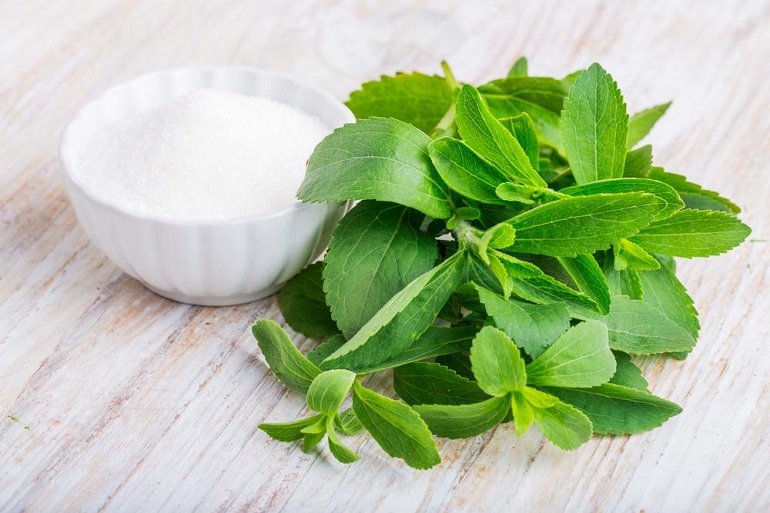I’m a person who firmly believes that one of the simplest and most enjoyable ways to celebrate life is through food, especially desserts. I also believe that the sweetest delights aren’t meant to leave us feeling guilty, which is exactly why refined sugar is no longer welcome in my kitchen and my belly. Having in mind the well known fact that refined sugar has fewer nutrients than any other sweetener offered on the market and that excessive white sugar consumption can increase the risk for cardiovascular disease, understanding why I ditched it becomes easy.
Today, I sweeten my morning cup of coffee or tea and prepare my favourite sugar-free desserts with Stevia products. Just as countless other individuals, I started using sugarleaf Stevia products mainly because I learned that Stevia sweeteners usually contain a small amount of calories or no calories at all, which is always an attractive piece of information for young people who are constantly searching for ways to adopt a healthier lifestyle. I must confess that I was a bit skeptical at first, for I’ve read and heard many times that Stevia’s taste is one that not everyone can get used to. But now that I’ve tried many sugarleaf Stevia products, I can tell you that they taste like… well, sugar. So, if you haven’t incorporated Stevia into your diet yet because you fear that it might ruin your favourite drinks and desserts – worry not for it definitely won’t.
One of the most interesting things about Stevia products is the fact that they are much sweeter than refined granulated sugar, which explains why they are used in small quantities. A number of reputable companies that sell Stevia sweeteners have created conversion charts to show just how sweet their products really are (compared to other sweeteners, of course). For example, according to Sweet Leaf’s conversion chart, 1 teaspoon of sugar equals 1/3 teaspoon of their Stevia baking blend. This, combined with the information that the average shelf life of a Stevia product is 5 years, makes purchasing and using Stevia sweeteners a smart choice.
In case you need more reasons to start cooking with granulated, powdered, and/or liquid Stevia, you should know that Stevia products, unlike white sugar, won’t harm your teeth. Furthermore, Stevia has been recognized by the American Diabetics Association as a suitable sugar alternative that doesn’t interfere with blood sugar.
Let me end this article by telling you that even though packaged Stevia products aren’t “all natural” (aside from the Stevia leaf extract, they also contain additional ingredients such as cane sugar and erythritol), they are still a much healthier option than refined sugar.


